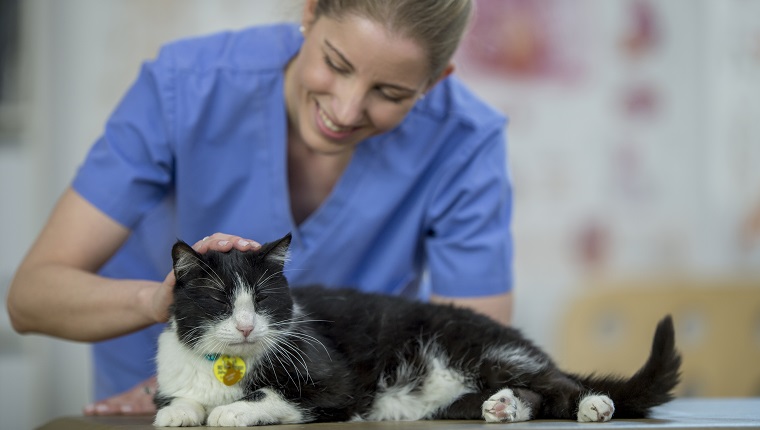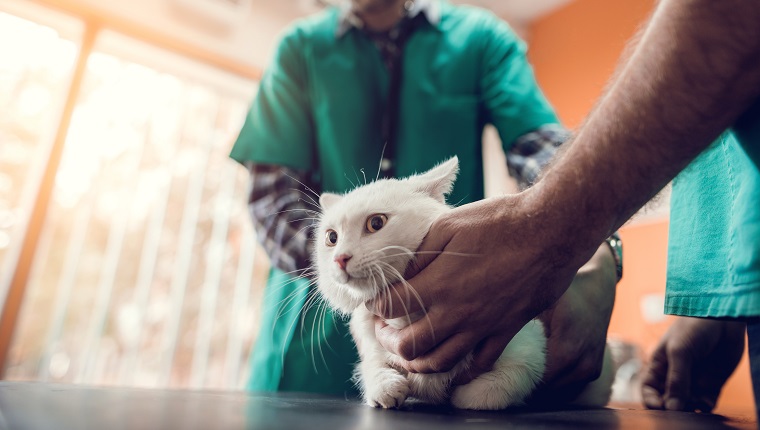Ulcers in cats are sores that are found in the stomach and parts of the small intestine. They often occur due to bacterial infections and can cause vomiting, discomfort, and even blood to appear in a cat’s feces. Ulcers in cats are also medically referred to as gastroduodenal ulcer disease.
If you see the signs of an ulcer in your cat, then you must get to a veterinarian for a proper diagnosis and treatment.
Here’s what you should know about the symptoms, causes, and treatments for ulcers in cats.
Symptoms Of Ulcers In Cats
Symptoms of ulcers in cats can be hard to detect as they often don’t result in visible signs at first.
Some of the common symptoms might include:
- Losing weight
- Vomiting
- Loss of appetite
- Blood present in feces
- Diarrhea
- Seeming to act lethargic
- Signs of anemia
Causes Of Ulcers In Cats

The causes of ulcers in a cat can vary. Oftentimes, the cause is a bacterial infection inside the digestive tract.
Other causes can include the use of anti-inflammatory medicine, parasites in the intestines, ingesting a poisonous substance or food, and the stress of suffering from a sudden injury.
Treatments For Ulcers In Cats
If you suspect that your cat is suffering from ulcers, your veterinarian will want to do a physical examination of your cat along with asking you questions about their symptoms and diet.
They may order samples of your cat’s feces and blood. The vet may also suggest an x-ray or endoscopy to get a more detailed picture of the extent of any ulcers in your cat. Once the vet confirms the presence of ulcers, they’ll attempt to treat the underlying cause.
There are a variety of ways to treat ulcers in cats, and depending on the cause and the severity, your vet might suggest a course of antibiotics, intravenous fluids, or even more intensive measures to help stabilize your cat. In some cases, they may suggest switching your cat’s diet to blander foods.
Has your cat ever suffered from ulcers? How did your vet help you treat them? Let us know in the comments section below.




